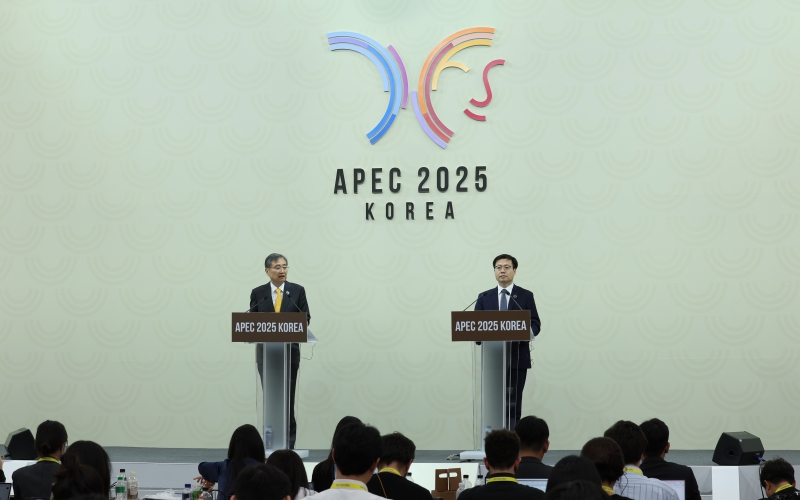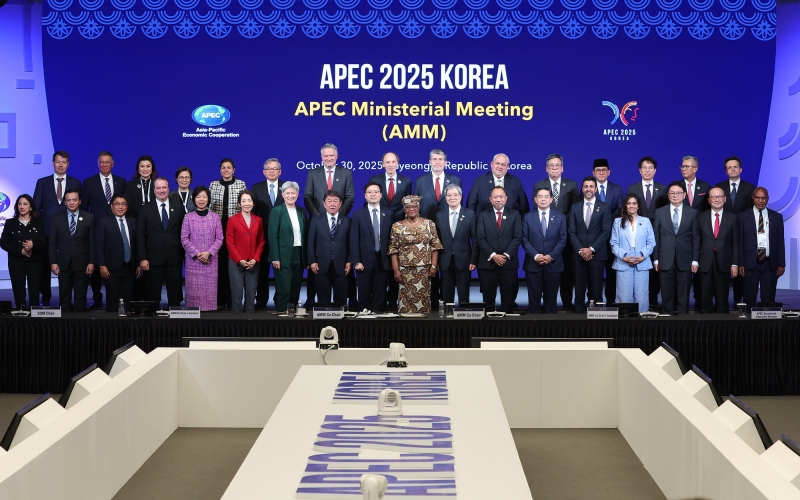
Minister of Foreign Affairs Cho Hyun (left) and Minister for Trade Yeo Han-Koo on Oct. 30 speak at a news conference on the results of the Asia-Pacific Economic Cooperation Joint Ministerial Meeting on Foreign Affairs and Trade at the International Media Center in Gyeongju, Gyeongsangbuk-do Province. (Park Daejin)
By Margareth Theresia
The APEC (Asia-Pacific Economic Cooperation) Ministerial Meeting on Oct. 30 concluded in Gyeongju, Gyeongsangbuk-do Province, aiming for a final review of producing substantial outcomes ahead of the main APEC Economic Leaders' Meeting.
Minister of Foreign Affairs Cho Hyun and Minister for Trade Yeo Han-Koo on Oct. 30 told a news conference after the meeting that they laid the basis to bring diverse agenda and collaborative achievements discussed this year to the main session.
As the APEC chair country this year, Korea hosted ministerial meetings in 14 sectors like maritime affairs, education and jobs to discuss in depth key policy issues. The scope of talks was expanded to include new global topics such as cooperation in artificial intelligence (AI) and demographic changes.
Minister Cho said APEC member states agreed that new technologies like AI have the potential to innovatively drive economic growth and greatly boost productivity.

Participants in the APEC Joint Ministerial Meeting on Foreign Affairs and Trade on Oct. 30 pose for a group photo at Gyeongju Hwabaek International Convention Center in Gyeongju. (APEC 2025's official Flickr account)
On major results in trade discussions, Minister Yeo said, "Through a joint fund, the Korean government and the APEC Secretariat from next year plan to actively pursue a capacity-building project to narrow the gap in AI utilization in supply chain management among regional members and between large and small businesses."
"The Korean government proposed to expand 'open plurilateral cooperation' along with reform of the World Trade Organization," he added. "The Asia-Pacific region is creating new trade norms and order through mega-regional trade agreements such as the Regional Comprehensive Economic Partnership, Comprehensive and Progressive Agreement for Trans-Pacific Partnership, and Digital Economy Partnership Agreement."
Apart from the Gyeongju Declaration, the document on the agreement among APEC leaders, preparation is underway for the joint statement of the APEC Ministerial Meeting to contain key outcomes from APEC meetings at all levels on topics like the importance of the multilateral trading system; APEC Prosperity Fund for Future Generations to boost youth capacities; and APEC regulatory reform strategies to raise the efficiency and transparency of regional markets.
margareth@korea.kr